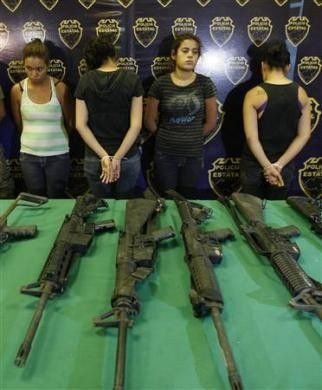'Reckless and Arrogant' Government Program Supplied Guns to Mexican Drug Cartels: Report

A government program to track guns purchased by drug cartels resulted in over 100 guns turning up at crime scenes, including that of a murdered U.S. Border Patrol agent, according to a highly critical report released by lawmakers on Tuesday.
The report was part of an ongoing government investigation into Operation Fast and Furious, a program jointly spearheaded by the Department of Alcohol Tobacco and Firearms and the U.S. Justice Department that employed a technique known as "gunwalking" in which agents deliberately do not halt illegal gun purchases, instead seeking to trace them to their source. But the agencies failed to communicate with each other or with Mexican authorities and frequently lost track of the weapons, the report found.
"It's incomprehensible that officials at the Justice Department, the ATF and the U.S. attorney's office would keep their counterparts at the U.S. embassy in Mexico City in the dark about Operation Fast and Furious," U.S. Sen. Chuck Grassley, R-Iowa, said in a press release. "Keeping key details secret while straw purchasers continued buying weapons for gun traffickers jeopardized our relationship with our southern ally and put lives at risk."
In 2009, ATF agents in Mexico noticed a sharp rise in the number of guns appearing at crime scenes. Carlos Canino, an ATF agent stationed in Mexico, expressed alarm to his superiors after linking guns at the scene of a bloody shooutout between the Sinoloa cartel and the La Familia cartel to the United States. But in a pattern that recurred througout, he remained ignorant of the operation's scope and was reassured that it was a success. Canino's boss described regular "screaming matches" with their superiors.
"In 21 years as an ATF agent, as a guy who teaches surveillance techniques, as a guy who teaches agents how to conduct field operations, never in my wildest dreams ever would I have thought that this was a technique," Canino testified. "It just, it is inconceivable to me."
Kenneth Melson, the acting director of ATF, had previously sought to deflect criticism by telling lawmakers the operation was guided by the Federal Bureau of Investigation, which did not share information with his agency.
© Copyright IBTimes 2025. All rights reserved.





















